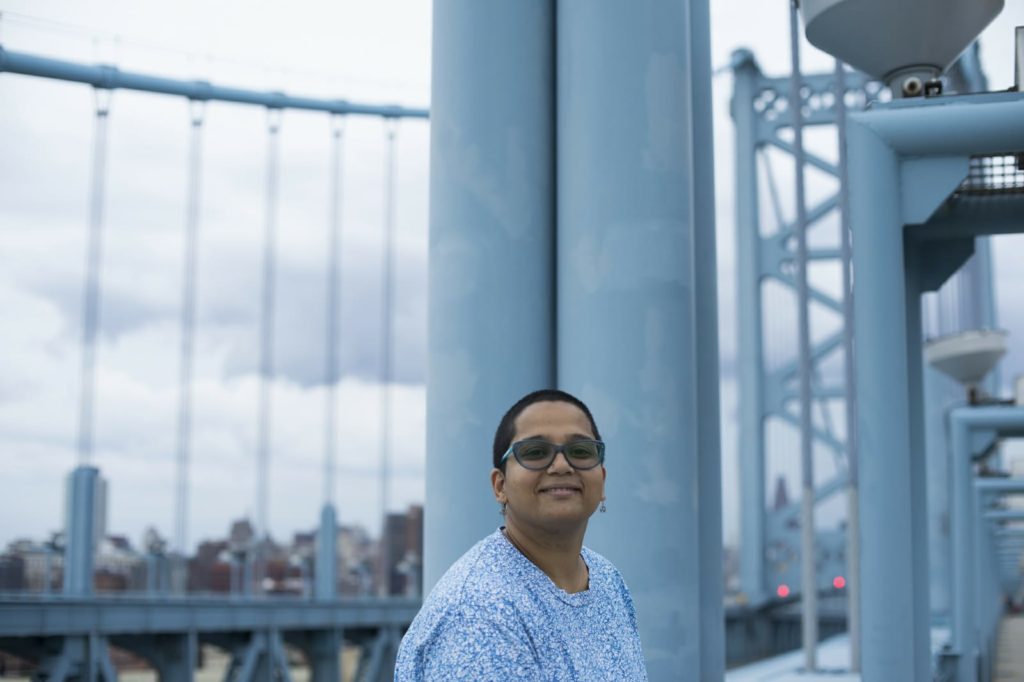
Year in Program: 3
Fields: U.S. History | North American Environmental History | History of Technology
Advisors: Dr. Lisa Fine and Dr. Michael Stamm
Committee: Dr. Helen Veit, Dr. Susan Sleeper-Smith
Office: 124 Old Hort
Educational Background:
Master of Urban Design, Lawrence Technological University, Southfield MI.
Master of Philosophy (Political Science), Jawaharlal Nehru University, India.
Master of Arts (Political Science), Jawaharlal Nehru University, India.
Bachelor of Mass Media, Wilson College, University of Mumbai, India.
Email: swayampr@msu.edu
Social Media: @ramyasway
Website: www.ramyaswayamprakash.com
I am an environmental and borderlands historian and my research is organized into inquiries about infrastructure and border history with a geographical focus on the U.S.-Canada border along the Detroit River. I am currently in the process of publishing scholarship on the role of dredging as a political and territorializing process in the Detroit River in the late nineteenth and early twentieth century. I have long been interested in movement, migration, and mobility along and across political borders and explored this in my master’s thesis in urban design at Lawrence Technology University. I have recently become interested in questions of rivers as borders and broadly, borders themselves. I am interested in how borders manifest themselves on the ground and on water. Borders are more than lines on maps; they are realities that need to be understood in the unique historical-ecological- sociological- technological circumstances that make the borders in the first place.
My dissertation, tentatively entitled “Freshwater Frontier: Island making, dredging, and infrastructure in the Detroit River 1865-1930” explores the origins, motivations, and effects of dredging to offer a new history of the Detroit River. In so doing, it attempts to offer a new analytical lens by thinking about dredging as a historical, material, andecological process. Furthermore, given the binational nature of the shipping channel, this dissertation argues that dredging is as much a territorializing process as it is a technological and political process. This is not a story about the rise and fall of dredging for dredging continues as a maintenance activity, worth multimillion contracts, every year; rather, it is a story of nature being altered and manipulated for greater economic returns. Between 1865 and 1930, the Detroit River went from a transportation chokepoint to an efficient and managed waterway. In examining dredging as a political, technological, and territorializing process, this dissertation is a new environmental history of the Detroit River that pays special attention to infrastructure and its impact on humans and non-humans.
In summer 2019, I will be conducting archival research in Canada and the United States. This will be followed by the Stevens Traveling Fellowship at the Bentley Historical Library at the University of Michigan. Pre-dissertation research was funded by the Department of History at MSU, the Environmental Science and Policy Program at MSU.
In summer 2018, I received funding from the Department of History to attend the Digital Methods for Interdisciplinary Cultural Studies Course at the Humanities Intensive Leaning and Teaching (HILT), a Digital Humanities Summer School at theUniversity of Pennsylvania. In 2016-17 I was a CHI Fellow at MATRIX where I produced a website on the town of Norris in Tennessee.
In 2019, I am helping co-organize the Workshop on the Environment, Agriculture, Agriculture, Technology and Science. I am also a fellow of the Career Diversity Implementation Grant of the American Historical Association where I am working towards expanding and embedding career diversity in the doctoral program. In 2016 and 2017 I was on the organizational committee of the Migration Without(out) Boundaries Conference– an interdisciplinary graduate student conference on migration at Michigan State University.
Departmental Activities:
President, Graduate History Association, Department of History, MSU, 2017-18
Organizational Committee, Migration With(out) Boundaries Conference, 2016-17
Grants, Awards, and Honors
Mark C. Stevens Traveling Fellowship, Bentley Historical Library, University of Michigan, 2019-2020
ESPP Urban Environment Summer Research Fellowship, Environmental Science and Policy Program at Michigan State University, Summer 2017
Fox International Fellow, Yale University, 2012-13
International Scholar, The Society for the History of Technology, 2012-13
(For a full list of honors and awards, please refer to my full vita)
Publications
Under review:
“Dredge a River, make a nation great: Shipping, commerce and territoriality in the Detroit River,1870-1905,” Michigan Historical Review “Pure Michigan”: Environmental Histories of the Great Lakes State Special edition. Spring 2019
Published:
“Exportable Engineering Expertise for ‘Development’: A Story of Large Dams in Post Independence India.” Water History6:2 (2014):153- 165, 201
Review of The Rise of the City: Spatial Dynamics in the Urban Century(New Horizons in Regional Science Series), edited by Karima Kourtit, Peter Nijkamp and Roger R. Stough. Science and Public Policy 44:3 (2017) 429-431.W